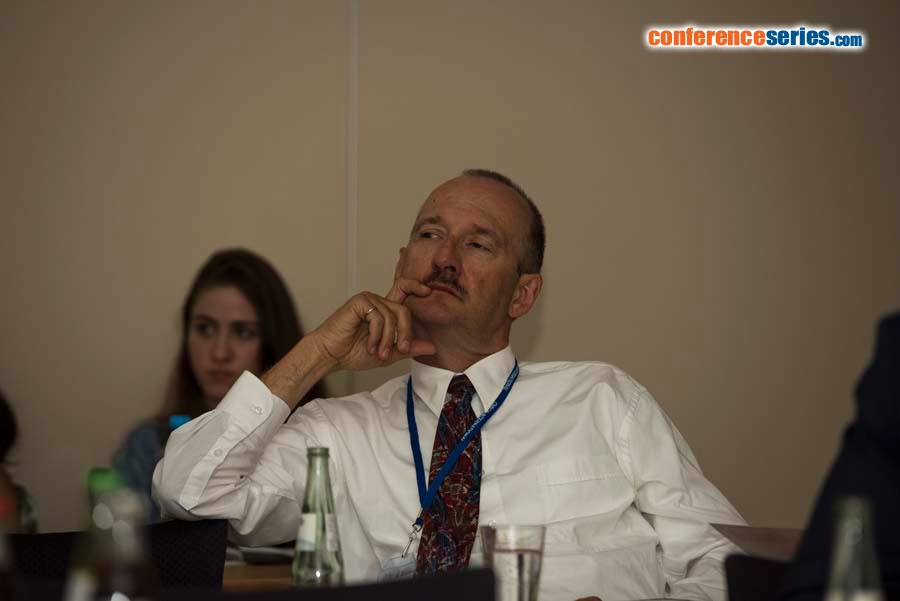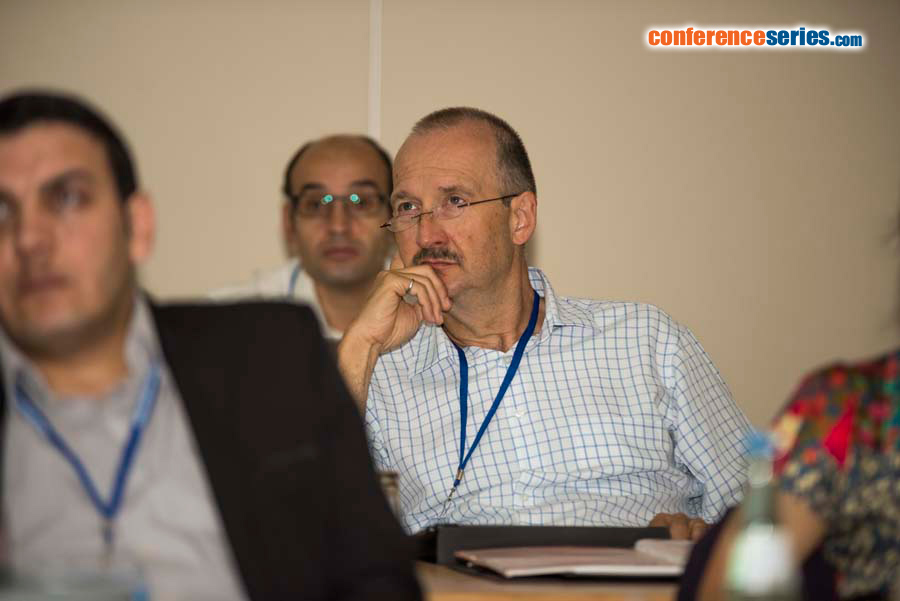
Richard G. Zytner
University of Guelph, Canada
Title: Potential for water reuse of high strength fruit and vegetable processor wastewater
Biography
Biography: Richard G. Zytner
Abstract
Research was completed on the effectiveness of an aerobic membrane bioreactor (MBR) to treat high strength food processing wastewater. The primary goal was to investigate the ability to reduce BOD, TSS and nutrients to levels below municipal sewer discharge limits as food processors are levied surcharges when the wastewater is discharged to the municipal system, affecting their competitiveness. The ultimate goal of the project was to evaluate the potential of reusing the treated wastewater. The lab scale MBR reactor contained a flat sheet ultrafiltration membrane module with nitrification/denitrification stages. Parameters analyzed were: COD, BOD, TSS, TKN, TN and TP. The operational parameters studied include flux, solids and hydraulic retention times and recirculation ratios. To assist with water reuse, the investigation looked at post-MBR treatment methods that included activated carbon and UV disinfection. Wastewater was taken from two industrial partners processing a variety of fruit and vegetable produce, which was characterized by relatively high amounts of organics and nutrients. The MBR had excellent removal efficiency at 97% COD, 99% BOD, 99.9% TSS, 90% TKN, and 60% TP for both industrial partners, effectively eliminating the surcharges. A cost and feasibility assessment was completed using bio-kinetic and stoichiometric relationships in combination with experimental data. The analysis showed that even though a MBR system is a significant investment, it can be a viable option for meeting current and future discharge guidelines. Investigation into water reuse showed that activated carbon was effective in removing colour and organic fractions in the wastewater, while UV was able to achieve a 5 log reduction in bacteriophage. Combining these systems with a MBR in the fruit and vegetable industry show the potential for water reuse.



